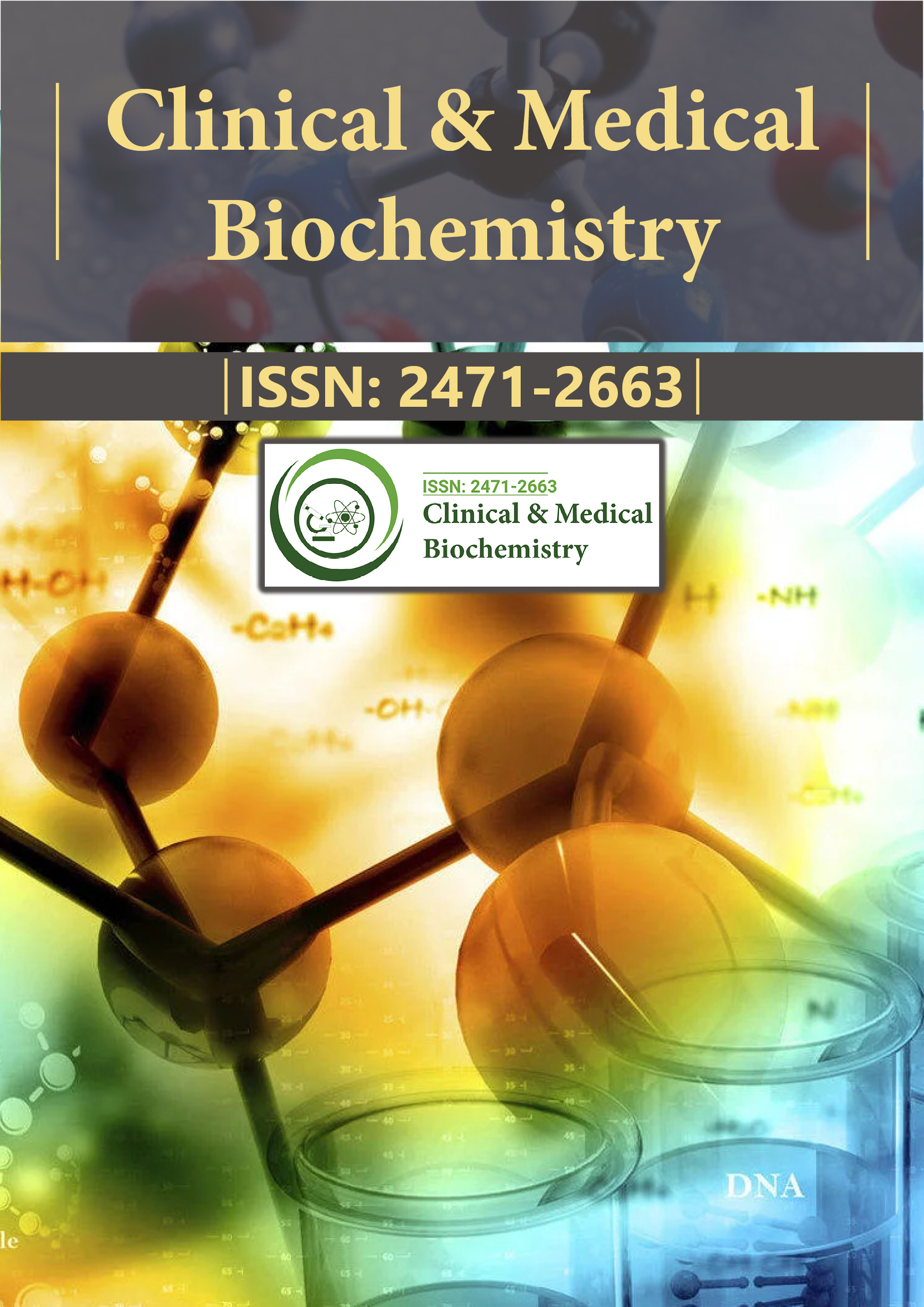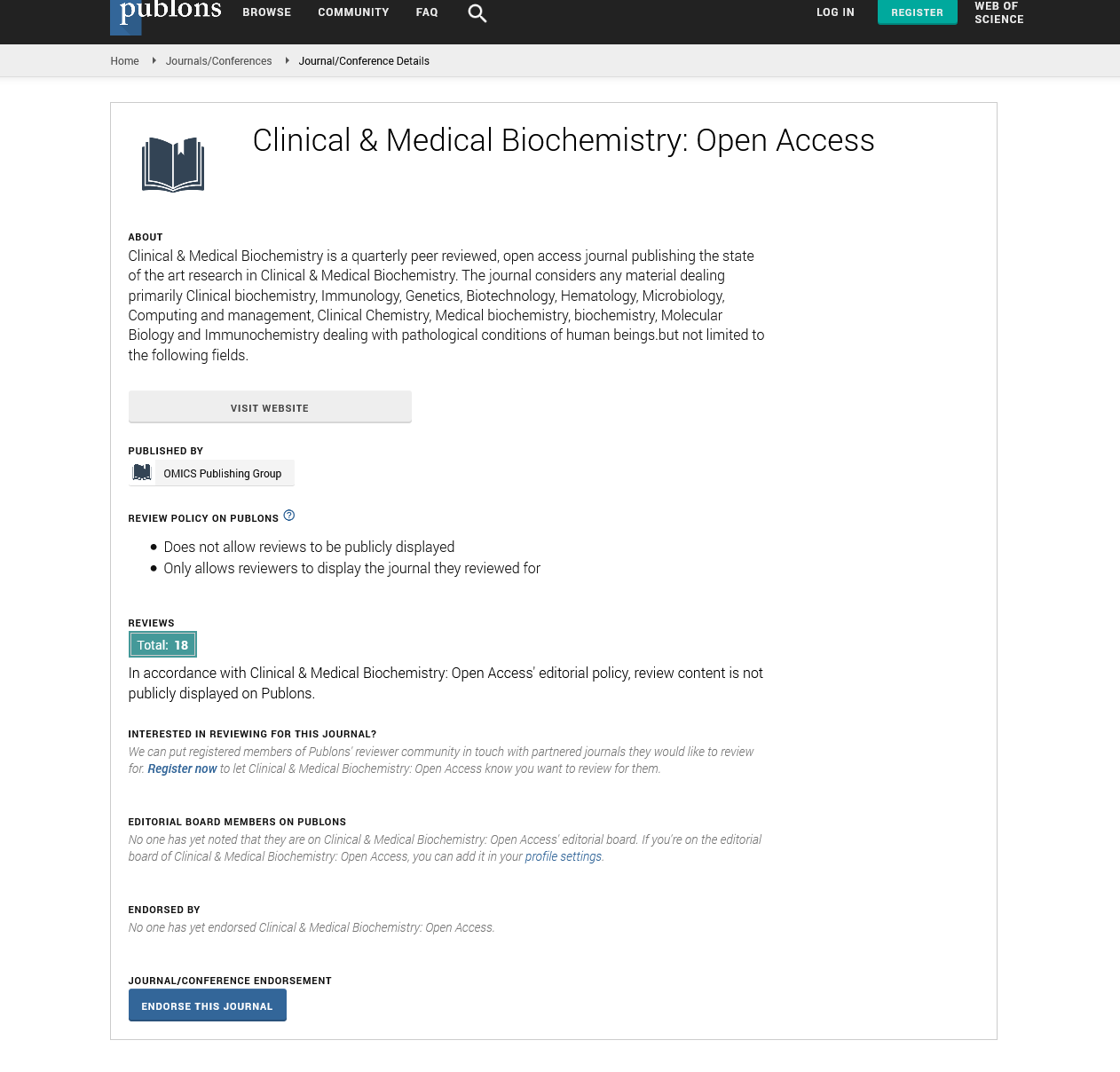Indexed In
- RefSeek
- Directory of Research Journal Indexing (DRJI)
- Hamdard University
- EBSCO A-Z
- OCLC- WorldCat
- Scholarsteer
- Publons
- Euro Pub
- Google Scholar
Useful Links
Share This Page
Journal Flyer

Open Access Journals
- Agri and Aquaculture
- Biochemistry
- Bioinformatics & Systems Biology
- Business & Management
- Chemistry
- Clinical Sciences
- Engineering
- Food & Nutrition
- General Science
- Genetics & Molecular Biology
- Immunology & Microbiology
- Medical Sciences
- Neuroscience & Psychology
- Nursing & Health Care
- Pharmaceutical Sciences
Abstract
AKT2 Gene Polymorphisms, Srankl/OPG And Hormone Measurements in Polycystic Ovarian Syndrome (PCOS) Women
Aikaterini Zerva, Christos Kroupis, Efthihios Trakakis, Nikoleta Poumpouridou, Marina Tsagkla, Evanthia Kassi, Dimitrios Kassanos and Kleanthi Dima
Objective: Polycystic Ovarian Syndrome (PCOS) is a common endocrinologic disorder diagnosed in 6-10% of female population at reproductive age. Altered expression of AKT2 gene has been correlated to increased insulin tolerance and reduced glucose disposal, both of which are PCOS features. The goal of this study was to investigate the association between AKT2 gene polymorphisms, serum biomarkers OPG and sRANKL as cardiovascular biomarkers, hormones (DHEAS, SHBG, testosterone, E2, LH, FSH, prolactin, insulin, 17-OH progesterone) and clinical characteristics as well (amenorrhea, oligomenorrhea, dysmenorrhea, acne, hirsutism, oily skin).
Study design: A total of 60 Greek Caucasian PCOS patients and another 30 healthy women that were age- and BMI-matched, were recruited in the study and their blood specimens and clinical characteristics collected. Serum OPG and sRANKL were measured with ELISA kits and hormones with Roche Cobas e411 immunochemical analyzer. Four AKT2 gene DNA SNPs (Single Nucleotide polymorphisms) were selected; rs11671439, rs8100018, rs3730051 and rs2304188 and novel real-time qPCR methods were developed using either the dual probe or the single probe format for their genotyping in the Light Cycler platform. All findings were confirmed with DNA Sequencing and statistical analysis was performed using SNP stats and SPSS software.
Results: PCOS women had higher serum levels of sRANKL, DHEAS, testosterone and 17-OH progesterone and lower levels of E2, SHBG and prolactin than controls. There was a statistically important difference for SNP rs2304188 between patients and controls regarding Minor Allele Frequency (MAF%): it was found to be more frequent in PCOS patients compared to controls [OR 4.04 (C.I. 1.12-14.54)], whereas concerning the entire population, studied individuals bearing the rs2304188 SNP have higher values of DHEAS and 17-OH progesterone, both biomarkers of PCOS. Furthermore, an association between hirsutism and SNP rs2304188 was found in PCOS patients (p=0.044). Eight participants had SNP rs8100018 in their DNA in combination with either rs11671439 or rs2304188; all were PCOS women.
Conclusions: Our results adjudicate further study on AKT2 gene SNPs in relation with PCOS.

